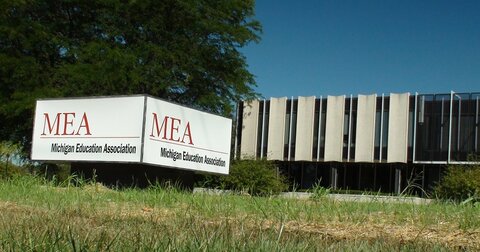To Teachers Union, Public Schools Are Part Of America’s ‘Systems Of Oppression’
A policy shift from promoting equal opportunity to preferred outcomes
Michigan’s largest teachers union wants public school teachers to actively combat what it calls institutional racism in their classrooms.
“Systemic racism is so deeply rooted in our history, culture and institutions that there’s no escaping it. Visible or not, its impacts are ever-present,” states a guide put out by the National Education Association on how to generate classroom activism around racial issues.
“Combating institutional racism and advancing racial justice in education and beyond is at the forefront of the NEA’s vision,” the guide states.
The Michigan Education Association’s website has a link to neaedjustice.org, which contains a resource guide on lessons for teachers and students.
The mission, according to the National Education Association’s “RACIAL JUSTICE IN EDUCATION” guide is to “break down the barriers to racial equity, and to prepare every student to succeed in a diverse and interdependent world.”
The guide states that avoiding the issue “communicates to students of color that racism doesn’t matter enough to warrant attention," while white students “often see racism being accepted and normalized, without acknowledgement or accountability.” It also states that the “lofty ideal of educational excellence and equity for all students, if it even exists at your school, may seem like a hollow commitment.”
The document describes racial equity as “the systematic fair treatment of all people, resulting in fair opportunities and outcomes for everyone.” The call for an undefined goal of “fair outcomes” suggests this is not the same as equal rights under the law.
The guide also advises teachers: "You probably don’t have to revamp your entire curricula or classroom practice. But there are many ways we can make room for addressing racial dynamics. Discussions in your classroom can even be stepping stones to addressing race in your school, school district and community."
It continues to teachers: "If you are white, you may be used to the privilege of not having to think or talk about race, especially your own. Push yourself to take some risks, which will likely lead to some rich learning. Your honesty and humility will help your students open up."
In Michigan, 65% of the public school students were white in 2020-21.
The MEA did not respond to a request for comment.
Michigan Capitol Confidential is the news source produced by the Mackinac Center for Public Policy. Michigan Capitol Confidential reports with a free-market news perspective.


